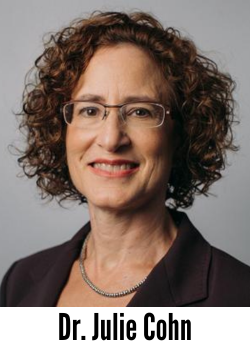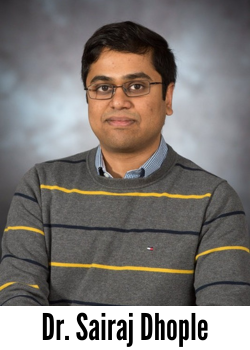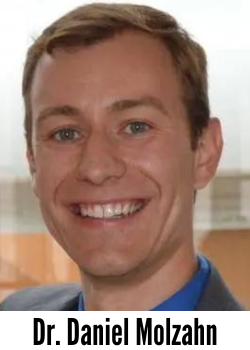*New Episode*: Discovering Power in the Past: The Algorithms and Power Systems Architecture Project
In the newest episode of the Center for Public History’s podcast Public Historians at Work, research historian Dr. Julie Cohn and electrical engineers Drs. Daniel Molzahn and Sairaj Dhople discussed their project on the history of “electrifying.” This project’s end goal, as its subtitled, is “using historical analysis to envision a sustainable future.”

Dr. Cohn is a research historian at UH’s Center for Public History, whose work focuses on energy infrastructure. Dr. Molzahn is an Assistant Professor at Georgia Tech’s School of Electrical and Computer Engineering, whose work focuses on the mathematics and optimization research involved in power systems. Dr. Dhople is the Oscar A. Scott Professor of Electrical and Computer Engineering at the University of Minnesota, and his work focuses on the intersection between power systems and power electronics.
Funded by the Alfred P. Sloan Foundation, the two-year Algorithms and Power Systems Architecture Project examines the central role of algorithms in the development of the electric power grid and their potential impact on the cleaner grid of the future. Reflecting the Sloan Foundation’s interest to fund historical scholarship projects that look to understand the contemporary context of scientific research, Drs. Cohn, Molzahn, Dhople wanted to document the relatively invisible, yet central, role of the algorithms developed by 20th-century engineers for optimizing and controling the electric power grid. They were also curious as to the ways in which these algorithms might impact the cleaner grid of the future.
The three researchers came together to create this interdisciplinary project as a result of their individual concerns over the future of their work and fields. Dr. Dhople cites his worries about whether or not current methods and approaches for power systems will continue to be relevant in the future. As such, he was drawn to Dr. Cohn’s book, The Grid: Biography of an American Technology, which surveys how the power grid came to be and functioned in the past. Dhople believes that considering past transitions within the field might provide answers to what the future of the field might look like.
Dr. Molzahn, on the other hand, cites his own memories of attending graduate school and the state of transition he observed there as the industry was integrated into a market context. However, he felt unsure about what it actually was they were transitioning from. Then, when senior figures within the field died, and stories about them spread throughout a symposium, he felt sure that their stories and past history of power systems needed to be shared.
Molzahn had already been in contact with Sairaj Dhople, but when he encountered Dr. Cohn’s work when she gave a keynote address at the Texas Power and Energy Conference, Molzahn began envisioning of a way to join all three of them together as a research team.

The result was the current Algorithms and Power Systems project. The project has three major components. The first is the oral history component, the second involves forensic citation research, and the third is about filling out the wider historical context around power systems.
Forensic citation research is essentially a deep dive into the bibliography of seminal publications and then taking an even closer look at the works, issues, and persons cited in those original publications.
In the podcast, Cohn, Molzahn, and Dhople discuss their oral history work – an excercise new to Drs. Dhople and Molzahn, but they report greatly enjoying the experience. Dr. Dhople even, jokingly, compared it to his favorite activity during academic conferences, which he describes as “corner[ing]” people he wants to talk to about their work, only now in an oral history “they don’t have a way out.”
They also describe approaching oral histories in a way very different than the traditional oral histories Dr. Cohn has experience with. Traditionally, interviews are conducted one-on-one and in-person. For the Algorithms and Power Systems project, oral history interviews have had as many as six or seven interviewers asking one interviewee questions. Additionally, several interviews have been conducted online. It is generally felt that group interviews might intimidate interviewees or obstruct the interviews rapport.

Dr. Molzahn thought that having a large group of interviewers was “really valuable” as “having that diversity of experience” between the different interviewers ensured that good questions were asked.
Many of these oral histories were collected as during this year’s annual IEEE Power and Energy General Meeting back in July. Dr. Cohn reported being really encouraged at just how interested these engineers seemed to be in a history project. She said that they actually had to put a ‘Do Not Disturb’ sign up to prevent curious conference attendees from interrupting interviews.
Drs. Molzahn and Dhople affirmed how encouraging they found this interest to be as well, and expressed that they hoped this project would motivate more people in the engineering field to take a closer look at the discipline’s past.
They also found encouraging how readily the students involved in their projects, collaborating from Humanities and Engineering fields alike, took to learning new skills in other fields, from humanities students learning technical terms and jargon in power systems to engineering students getting excited about oral histories.
Listen to the full episode:https://publichistoriansatwork.buzzsprout.com/1267733/15675057-discovering-power-in-the-past-the-algorithms-and-power-systems-architecture-project.
Read more about the project: https://uh.edu/class/news/archive/2023/march/uh-historians-team-up-with-engineers-to-understand-the-future-of-the-power-grid/